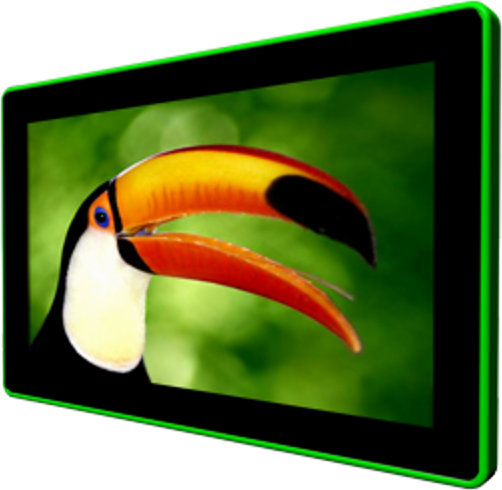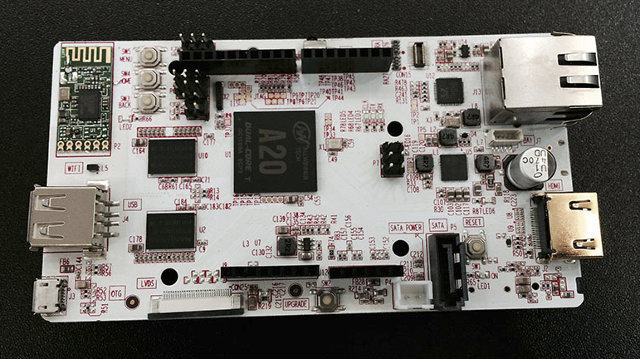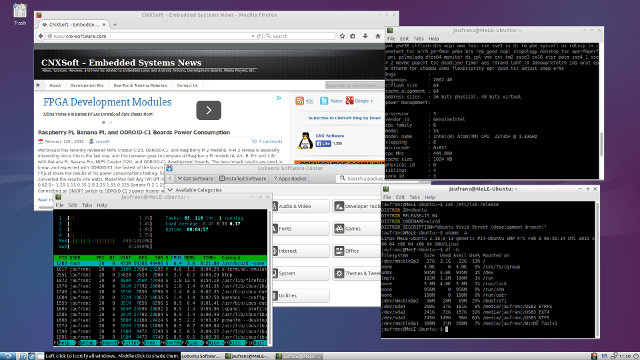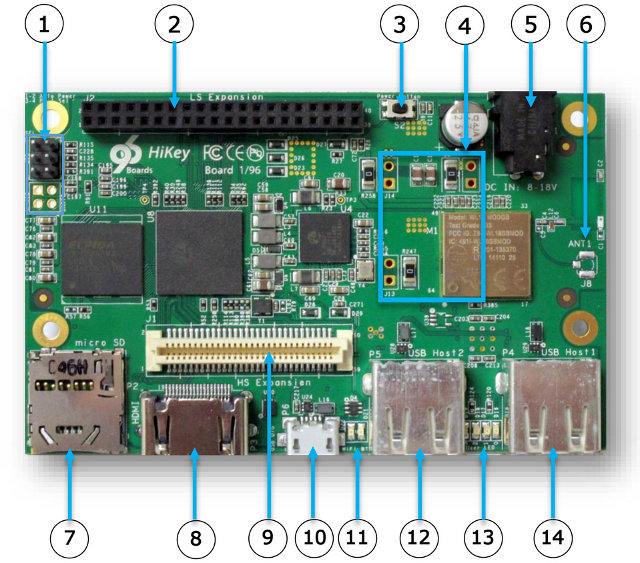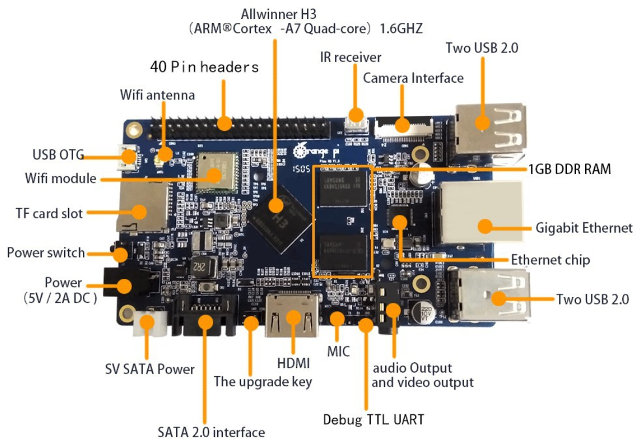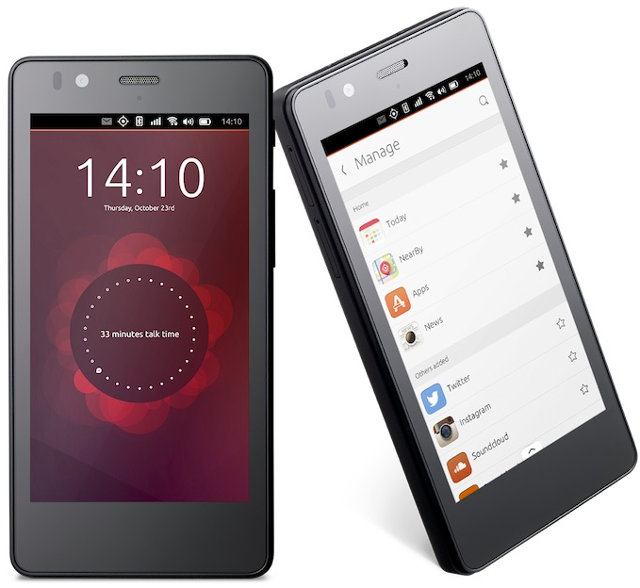BQ Aquaris E4.5 Ubuntu Edition may have been the first phones launched with Ubuntu operating systems, but the device is rather an entry-level smrtphone with Mediatek MT6582 quad core Cortex A7 processor and 1GB RAM. If you’d like a much faster and powerful Ubuntu phone, Meizu MX4 Ubuntu Edition will be announced at Mobile World Congress 2015. The specs has not been disclosed yet, but it’s highly likely the hardware will be the same as the Android version of Meizu MX4: SoC – MediaTek MT6595 octa core processor with 4 Cortex A17 @ 2.2GHz, and 4 Cortex A7 @ 1.7GHz in big.LITTLE configuration with a PowerVR G6200 GPU. System Memory – 2GB dual-channel LPDDR3 RAM, 933MHz Storage – 16, 32, or 64GB eMMC Display – 5.36″ IPS touchscreen; 1920×1152 resolution; Corning Gorilla Glass 3 Camera – 20.7MP rear camera with dual tone LED flash, 2MP front-facing camera Audio – 3.5mm […]
Toucan-0700 HMI Panel Runs Linux or Android on Freescale i.MX6 Processors
TechNexion Toucan-0700 is an HMI (Human Machine Interface) panel based on Freescale i.MX6 modules and a baseboard following EDM standard for system-on-modules. The 7″ panel PC features the same EDM1-CF-IMX6 SoM used in Wandboard development boards, and runs various Linux distributions, as well as Android 4.3 or 4.4. Toucan-0700 specifications: SoC – Freescale i.MX6 Solo/Duallite Cortex A9 processor with Vivante GPUs (i.MX6 Dual/Quad on request) System Memory – 512MB (Solo), 1GB (Duallite) Storage – 4GB eMMC + micro SD slot Display – 7″ LCD display with LED backlight, 1024×600 resolution; 16M colors; 500 cd/m²; 4 points touchscreen Video Output – HDMI 1.4 for external display Connectivity – Gigabit Ethernet with POE function 802.3at, and optional WiFi 802.11 b/g/n + Bluetooth 4.0 (Broadcom BCM4330) USB – 1x USB 2.0 host port, 1x USB OTG 3.0 connector, 2x internal pin headers Serial – 1x RS-232 (galvanic isolated), 1x RS-232/422/485 (galvanic isolated), 2x […]
pcDuino3B Development Board Adds Gigabit Ethernet Support
pcDuino3 development board features Allwinner A20 dual core Cortex A7 SoC with support for SATA, HDMI, LVDS, Wi-Fi, Fast Ethernet, and Arduino compatible headers. Linksprite has now an updated version of the board that adds Gigabit Ethernet, while leaving the rest of the specs unmodified. pcDuino3B (aka pcDuino V3B) specifications: SoC – AllWinner A20 dual core ARM Cortex A7 @ 1.0 GHz, with Mali 400MP2 GPU System Memory – 1GB DRAM Storage – 4GB NAND Flash, SATA connector, and microSD card slot (up to 32GB) Video Output – HDMI 1.4 with HDCP support, LVDS header Audio Out – 3.5mm analog audio interface, I2S stereo digital audio interface Connectivity – Gigabit Ethernet, 802.11 b/g/n WiFi USB – 1x USB host, 1x USB OTG Expansion Headers – Arduino UNO extension interface with 14xGPIO, 2xPWM, 6xADC, 1xUART, 1xSPI, 1xI2C. Camera – MIPI camera support Misc – IR receiver Power – 5V, 2000mA, support […]
HiSilicon D02 Server Board Supports up to 64 ARM Cortex A57 Cores
HiSilicon has showcased their latest server SoC and board at Linaro Connect Hong Kong 2015, with up to two processors with 32 Cortex A57 cores @ 2.1GHz, 8 DIMM DDR3 slots (up to 128 GB RAM), 12 SATA ports, 4 PCIe slots, 10GbE / GbE ports. D02 board specifications: SoC – Hisilicon PhosphorV660 Hip05 with 16 to 32 ARM Cortex-A57 cores @ up to 2.1GHz and 1MB L2 cache/cluster, 32MB L3 cache System Memory – 2x Memory channel 4x DDR3 DIMM(4x DIMM per processor) Storage 12x SAS 3.0 ports @ 12 Gbps (8 for the first processor, 4 for the second). SAS port are compatible with SATA drives. You may want to read SAS vs SATA post for more details about SAS. 2x SPI Flash 158Mb BIOS/UEFI 1Gb NorFlash Connectivity – 2×10/100/1000Mbit/s Gigabit Ethernet ports, 2x xGE SFP+ ports (10Gb/s) Expansion – 2x 8x PCI express interfaces per processor (4 […]
How To Install Ubuntu 15.04 on MeLE PCG03 Intel Mini PC
I’ve already spent some time to test MeLE PCG03 Bay Trail-T mini PC in Windows 8.1, including a detailed video and audio review in Kodi 14.1. Since I don’t have anything else to do with Windows on the machine, I’ve decided to install Ubuntu instead, completely wiping out Windows 8.1. Since you pay around $30 for the Windows license, MeLE PCG03 is not the ideal platform computer for this little exercise due to the extra cost, but it should also work with other Intel Atom Z3735F based computer that may not come with a license. At first I planed to go with Ubuntu 14.10 Mate ISO image, and it boots fine, but was curious to try from “scratch” with another ISO, so I went with Ubuntu 15.04 Alpha 2 (64-bit) image. I just went to the first link Google Search provided me and did not pay attention enough, and ended-up […]
$129 Hikey Board Features a 64-bit ARM HiSilicon Processor, Complies with Linaro’s 96Boards Specifications
In my post about the Embedded Linux Conference 2015, I noticed a talk entitled “Generalizing Android for Low-Cost 64-Bit ARM-Based Community Boards” to be presented by Khasim Syed Mohammed, Linaro, mentioning that “Linaro is developing an open hardware platform specification to encourage software development on low-cost boards to lower the cost and accelerate the availability of maker and embedded products based on ARM SoCs”. But at the time, I had no details about the specifications themselves. As Linaro Connect HK 2015 is now taking place, the 96Boards Consumer Edition specifications have been released, and Hikey board have been unveiled with HiSilicon Kirin 620 octa core Cortex A53 processor, 1 GB RAM, and 4GB eMMC. Hikey board specifications: SoC – HiSilicon Kirin 620 octa core Cortex A53 processor @ 1.2 GHz (10,000 Dhrystone VAX MIPS) with ARM Mali-450MP4 GPU System Memory – 1GB LPDDR3 @ 800 MHz Storage – 4GB eMMC […]
Orange Pi Plus Development Board Gets Upgraded to Allwinner H3 Processor
Orange Pi boards were recently launched with a form factor similar to the Raspberry Pi Model B+, and featuring Allwinner A20 and A31s processors. Orange Pi Plus was initially fitted with Allwinner A31s processor, but Shenzhen Xunlong Software has now decided to use the latest Allwinner H3 quad core processor instead for this model, adding better CPU performance, and H.265 video decoding up to 4K @ 30 fps, likely at the cost of a slower Mali- 400MP2 GPU against the PowerVR SGX544MP used in Allwinner A31s. New Orange Pi Plus specifications: SoC – Allwinner H3 quad core Cortex A7 @ 1.6 GHz with ARM Mali-400MP2 GPU up to 600 MHz System Memory – 1GB DDR3 Storage – micro SD card slot, SATA interface (via a USB to SATA chip), unpopulated 8GB eMMC on the back of the board (despite picture, see comments section) Video Output – HDMI, AV port Audio […]
BQ Aquaris E4.5 Ubuntu Edition is the First Official Ubuntu Smartphone
Canonical announced its plans for Ubuntu for Phone over 2 years ago, and all that work may finally pay off, as BQ Readers will soon launch Aquaris E4.5 Ubuntu Edition, the first Ubuntu smartphone that’s based on the company’s Aquaris E4.5 smartphone running Android 4.4. BQ Aquaris E4.5 (Ubuntu Edition) specifications: SoC – Mediatek MT6582 quad core Cortex A7 @ 1.3 GHz with Mali-400MP2 GPU up to 500 MHz System memory – 1 GB Storage – 8 GB eMMC, microSD card (up to 32 GB) Display – 4.5″ IPS multi-touch screen (5-point); qHD (540 x 960) resolution Connectivity – Bluetooth 4.0, Wi-Fi 802.11 b/g/n, FM Radio, GPS and A-GPS Cellular Connectivity – 2G GSM (850/900/1800/1900), 3G HSPA+ (900/2100). Dual micro SIM. Audio – 3.5 mm headphone jack, microphone, Ambient noise cancellation, Dolby sound technology Camera – 5MP front-facing camera, 8MP rear camera with autofocus and flash USB – micro USB […]



